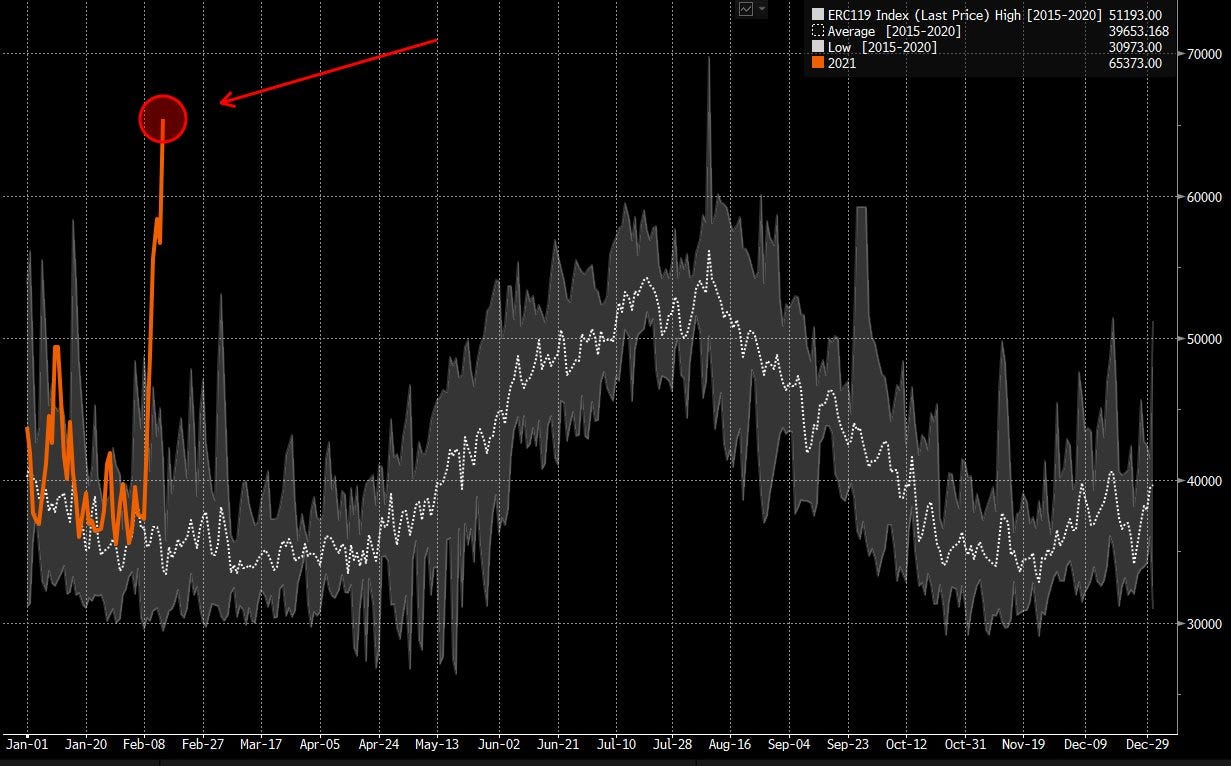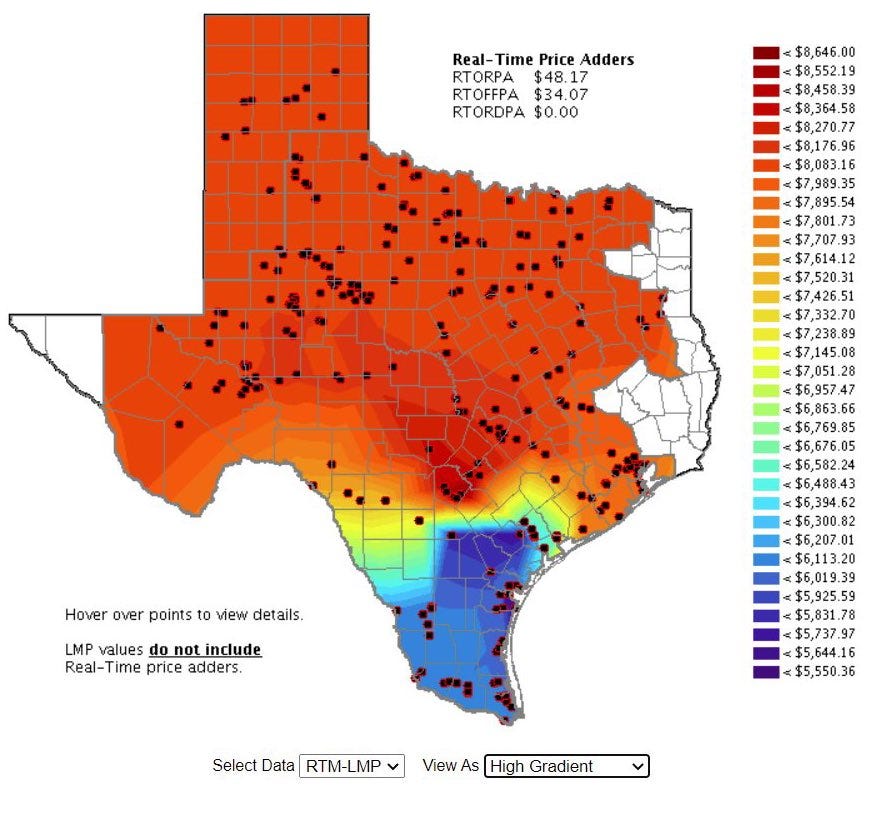Malt Liquidity 32
Newsletters are just informal law school apps
No Takebacks Allowed
I have previously mentioned the hilarious saga of Citi accidentally paying out the full principal of a loan when they meant to facilitate an interest payment, and stated that
…The onus is on Citi to explain why they paid out the full debt total rather than an interest payment that was supposed to be less than 1% of that amount. At the end of the day, “we messed up” isn’t enough here, because as a bank you are paid fees to assure that nothing goes wrong - as such, any responsibility for an error naturally should be yours! By refusing to admit that the payment was erroneously made, Citi is put in a catch-22 of proving an error occurred that they were obligated to be responsible for that was over money they oversaw the transfer of that they weren’t responsible for
It appears this intuition was right, as today a judge denied Citi’s attempt to claw the money back:
Brigade Capital Management LP and other Revlon lenders can keep the money they collected from Citi when the bank wired them the full amount they were owed instead of the small interest payment that was due…
While some lenders that were mistakenly paid returned roughly $385 million to Citi, others refused the bank’s request for repayment…
I’m astonished that some lenders just returned the money because Citi asked nicely. Like, I’m sure Citi will repay this generosity through (new)some really fancy French Laundry dinners, but just agreeing to play by the rules feels really weird. The general banking and finance meta seems to be “push against the hyper-regulatory environment and pay a fine if you get caught/pay up if the judge rules against you”, and this isn’t even usually done that nefariously, as Citigroup themselves have done the banking equivalent of pretending something is scrubbed from the internet just by pressing a delete button. Revlon is not a particularly creditworthy company: Caa3 implies a 73% 4-year default probability! It is unfathomable to me that a $900 million credit line unexpectedly going from a 73% default probability to a 0% default probability by offloading the credit risk to Citi isn’t worth ensuring that Citi is in fact legally owed the money back just to preserve the flow of expensed sushi dinners.
The opinion itself is particularly hilarious because it seems to echo my armchair legal rhetoric:
…for the reasons discussed above, the Court finds that the Non-Returning Lenders were not on notice of Citibank’s mistake when they received the transfers. The transfers matched —to the penny — the amount of principal and interest outstanding on the loan. The accompanying notices referred to interest being “due,” and the only way in which that would have been accurate was if Revlon was making a principal prepayment. And it appears that no mistake of the size or nature of Citibank’s had ever happened before. Faced with these circumstances, the Non-Returning Lenders believed, and were justified in believing, that the payments were intentional. Indeed, to believe otherwise — to believe that Citibank, one of the most sophisticated financial institutions in the world, had made a mistake that had never happened before, to the tune of nearly $1 billion — would have been borderline irrational.
I wrote in December that “it is particularly amusing that the argument for not returning the money to Citi is simply ‘I can’t say if they meant to do that’”, and I am even more amused to see this logic upheld in court.
Rebooting Reality
In this real-life version of Netflix 1980’s nostalgia bait, it seems that power grids are messing with Houston energy companies (and Texas in general):
Wholesale power for delivery Monday traded at $9,009.40 a megawatt-hour in the West hub at 1 a.m. in Houston, a staggering 3,466% increase from Friday, according to data compiled by Bloomberg. Ercot sets the limit to avoid runaway prices during extreme events.
About half of the state’s wind turbines were inoperable Sunday morning because of ice and cold, according to the Electric Reliability Council of Texas, the grid operator. Meanwhile demand is surging as people crank up heaters, with consumption setting a new winter peak record on Sunday.
This chart is particularly awe-inducing:
The real question here is about who’s getting screwed by this price-wise. Somebody has to pay the true cost. While the consumers are facing blackouts, they are also flat-rate-capped for the most part. Though some electricity retailers are facing a cash crunch, these seem to be the ones that don’t do flat rate caps:
One power supplier, Griddy, told all 29,000 of its customers that they should switch to another provider as spot electricity prices soared to as high as $9,000 a megawatt-hour. Griddy’s customers are fully exposed to the real-time swings in wholesale power markets, so those who don’t leave soon will face extraordinarily high electricity bills.
“We made the unprecedented decision to tell our customers -- whom we worked really hard to get -- that they are better off in the near term with another provider,” said Michael Fallquist, chief executive officer of Griddy.
Naturally, it makes sense to incentivize this in some way - energy customers are not Citi clients, they won’t just comply to convenience the company:
$100 seems extremely cheap here from my point of view. If prices are touching 9k/mW hr, I’d expect each customer transfer to be worth a much larger percentage of that aforementioned 3466% increase, especially when this
is the statewide map. Funny thing about that word supposed - all these energy retailers are supposed to be hedged either through derivatives (open market insurance) or OTC insurance contracts themselves. However, what comes into play here are force majeure clauses, as while I was writing this, Occidental declared force majeure related to Permian oil operations. I assume these are normally boilerplate formalities, but they also came into play regarding Coronavirus. It is impossible to know where the cost liability will shift between insurer and energy provider given that I am not privy to the coverage these companies bought (obviously), but it is important to note where this is happening as oil/natural gas production by midstreamers is naturally going to be affected by a cash-flow crunch. Something tells me that the renewable energy transition is going to be looked at a little more closely given the failure of wind and solar, though (and perhaps they’re held liable for the energy shortage?)
Yada yada none of this is legal advice yada yada
On that note…
(also, wtf is this header image? What kind of weird pretentious native advertising is an all-white Rubik’s cube and an open Perrier can? Instead of Goldman Blue are they transitioning to Vanilla Douche?)







You have to wonder with these types of costs, if the hyper elite controlled 'open market', was the actual cause of the blackouts. Did someone get the grease gun out and pay guys to down some lines? Pay operators to just pretend a rolling blackout was occurring? I was in it. We never had power. We still don't have power. I had to exfil for a hotel and had to leave plenty of my suffering neighbors behind.